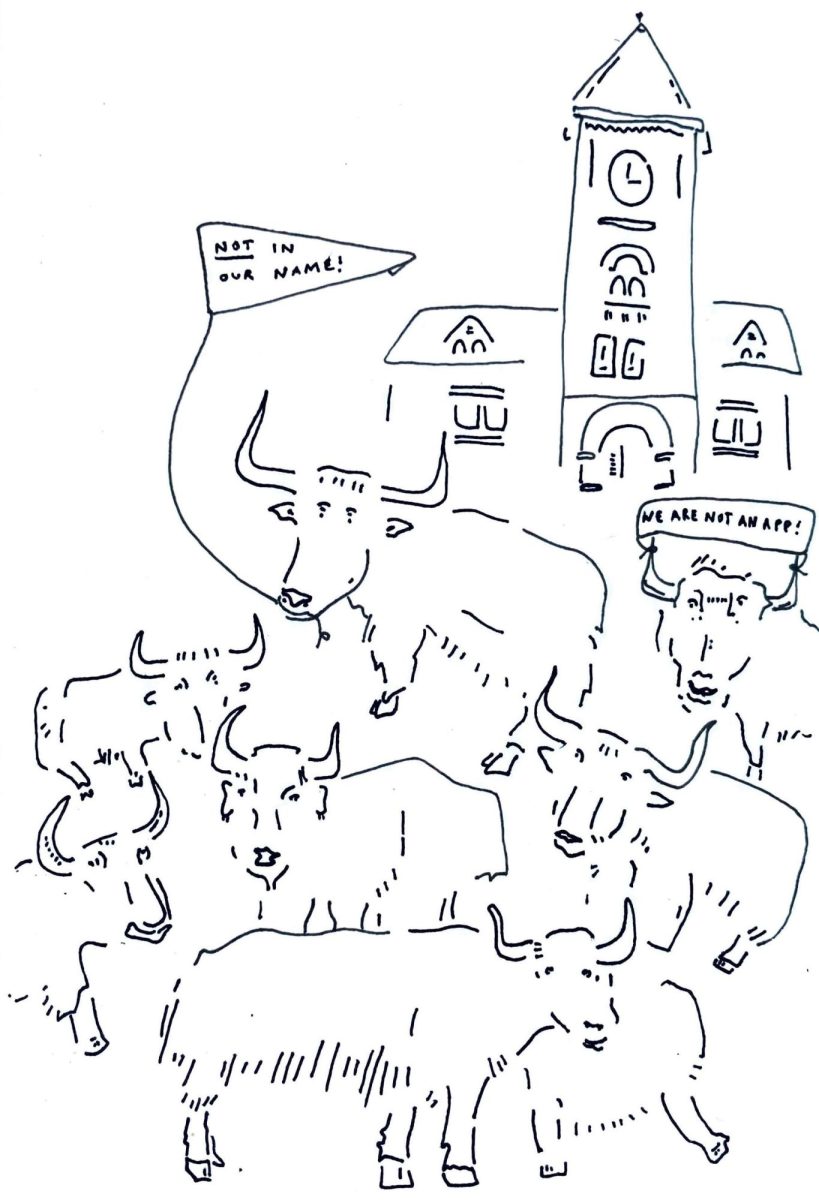Students eating dinner in Prentiss Dining Hall last week were surprised to discover that tofu had completely disappeared from the menu. Tofu is a perennial favorite in the dining hall, praised by students for its robust texture and subtle yet delicious flavors. But according to Bon Appétit staff member Joe Vansel, the delectable protein has been a victim of its own success.
“Bon Appétit has completely run out of tofu,” said Vansel, who is the company’s vice president in charge of vegetarian protein substitutes. “Student demand for it has been so high that we’ve used up our entire reserve tofu stockpile.”
Vansel said that Bon Appétit has always experienced high demand for tofu, but that demand has risen exponentially in the past few years as more students have become vegetarian and vegan.
“There’s an increasing awareness of the problems with industrial food production,” said Vansel. “Many students feel uncomfortable eating animal products of uncertain origin, so they naturally shift comfortably to an amorphous white food-like substance that they’re told contains protein.”
For Whitman’s vegetarian community, the lack of tofu was cause for concern.
“Bon Appétit needs to do more to provide for people who choose not to eat animal products,” said junior Sarah Hemmer, president of Vegans Against Cruelty to Animals, Nutria and Terriers (VACANT). “They cater well to some students, but the options for vegans who are gluten intolerant, only eat raw, organic foods and can’t have added sugar in their diet are really limited.”
Some Whitman students welcomed the lack of tofu. First-year Jack Dowling said that he looked forward to meals featuring something he called “real food.”
“I have nothing against tofu, unless I have to eat it,” he said.
He started to list foods Bon Appétit could replace the missing tofu with, but was attacked by a mob of VACANT members before he could finish saying “pork chops.”
Vansel said that Bon Appétit is committed to finding acceptable replacements for vegetarian protein while the company assesses their tofu consumption and looks for suppliers who are capable of handling large volume orders. One of the options being considered is RPP, also known as reformulated polymer protein.
“RPP is a great option for vegetarians, because it’s a truly sustainable product,” said Vansel. “It’s made from recycled plastics harvested from the Pacific Ocean, and it’s held together by a vegan protein substrate that binds the plastic together.”
Hemmer said that RPP would probably be an adequate substitute for tofu, but that Bon Appétit needed to carefully consider its sourcing practices for the materials.
“While I fully support plastic recycling and believe that RPP can be a sustainable food choice, we need to consider the carbon footprint caused by importing plastic from the Pacific Ocean,” she said.
VACANT has plans to work with Bon Appétit to start a campus plastic recycling program which could ultimately provide enough plastic to meet Whitman’s RPP demands. According to Hemmer, this program would allow dining hall RPP to be certified as local, which could allow it to qualify as “real food” for an audit currently being conducted by campus environmental groups.
When asked about the transition from tofu to RPP, Dowling thought for a minute and finally nodded.
“Whatever RPP is, it can’t be any worse than field roast,” he said.







